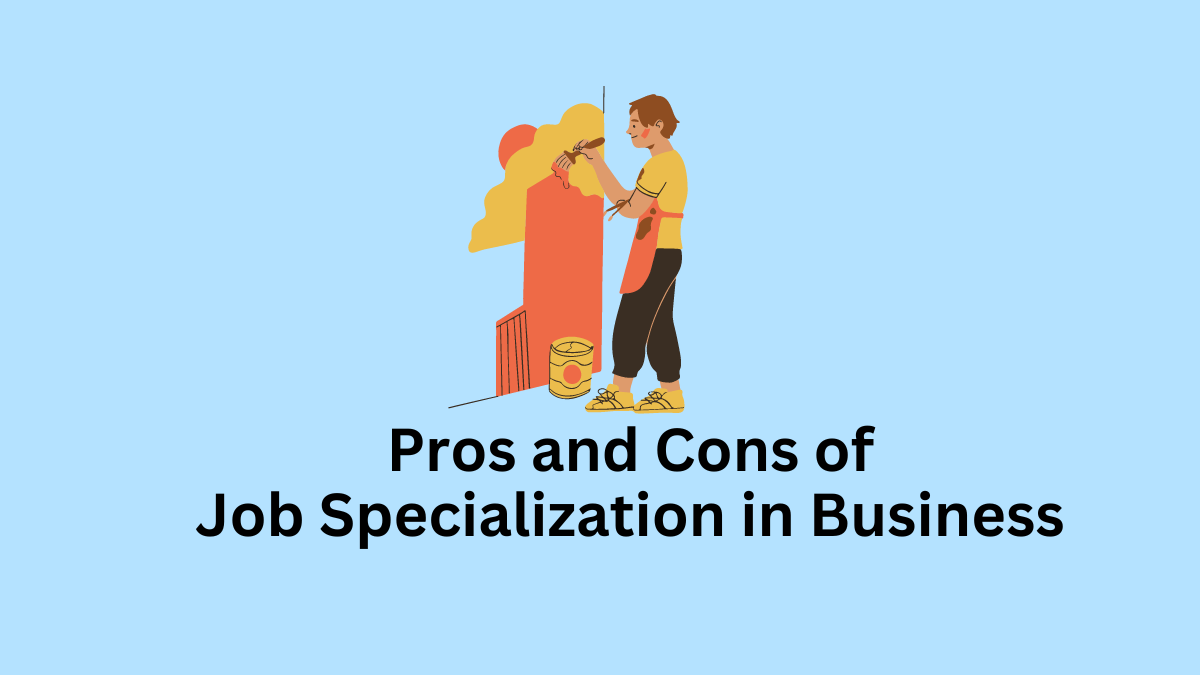Pros and Cons of Job Specialization
Job specialization is the process of focusing employees on specific tasks or roles based on their skills and expertise. This approach aims to increase efficiency and productivity by allowing workers to develop deep expertise in a particular area, thereby improving the quality of work and reducing errors. Here we will discuss 10 main pros and cons of job specialization business:
Pros of Job Specialization
Job specialization offers numerous benefits that can significantly enhance business performance. The following are the five main benefits of job specialization business:
Increased Efficiency and Productivity
Job specialization involves assigning specific tasks to employees based on their skills and expertise. This practice ensures that employees focus on what they do best, leading to higher efficiency and productivity.
Workers can perform tasks more quickly and accurately since they have mastered the specific processes involved. This reduces the time spent on training and enhances the overall output of the organization.
Higher Quality of Work
Specialization leads to a higher quality of work because employees become highly skilled in their specific roles. They make fewer mistakes and produce higher quality output due to their focused expertise.
This consistency and precision are particularly beneficial in industries where quality control is critical, such as manufacturing and healthcare.
Cost Savings
By improving efficiency and reducing errors, job specialization can lead to significant cost savings. The reduced need for extensive training and supervision lowers operational costs.
Additionally, specialized employees work faster, which means more output in less time, further driving down production costs and increasing profitability.
Less Supervision Needed
Specialized employees require less supervision because they are experts in their tasks. They know what to do and how to do it efficiently without constant guidance.
This allows managers to focus on strategic planning and other higher-level responsibilities instead of micromanaging employees.
Enhanced Employee Expertise
Specialization allows employees to develop a deep understanding and high level of expertise in their field. This not only benefits the organization by improving performance but also helps employees in their career development.
They become more valuable in the job market, which can lead to better job opportunities and career advancement.
Cons of Job Specialization in Business
However, job specialization also has its drawbacks. The repetitive nature of specialized tasks can lead to boredom and job dissatisfaction, which may negatively affect employee morale and productivity. The following are the 5 major disadvantages of job specialization in business:
Monotony and Job Dissatisfaction
Performing the same tasks repeatedly can lead to boredom and monotony. Employees may feel unchallenged and disengaged, which can result in job dissatisfaction.
This lack of variety can reduce motivation and enthusiasm, negatively impacting overall productivity and employee morale.
Lack of Flexibility
Specialized employees are highly skilled in specific tasks but may lack the versatility to perform other roles.
This inflexibility can be problematic if the organization needs to reallocate resources or if there are changes in the workload. It can also hinder employee mobility within the company, limiting opportunities for growth and development.
Increased Dependency on Specific Employees
When certain tasks rely heavily on specialized employees, the organization becomes dependent on their continued availability.
If a specialized employee leaves the company or is absent, it can disrupt operations significantly. The time and cost to train a replacement can be substantial, leading to potential delays and loss of productivity.
Higher Salary Demands
Skilled specialists often command higher salaries compared to generalists. Their expertise and the critical nature of their roles justify higher compensation, which can increase overall labor costs for the organization. This can strain the company’s budget, especially if multiple specialists are required.
Reduced Career Development Opportunities
Specialization can limit employees’ exposure to different tasks and roles within the organization. This lack of variety can hinder their overall professional development and career growth.
Employees might find it challenging to acquire new skills or advance to higher positions, leading to stagnation and decreased job satisfaction over time.
Hence, the above-mentioned are the 5 major pros and 5 major cons of job specialization in business.
